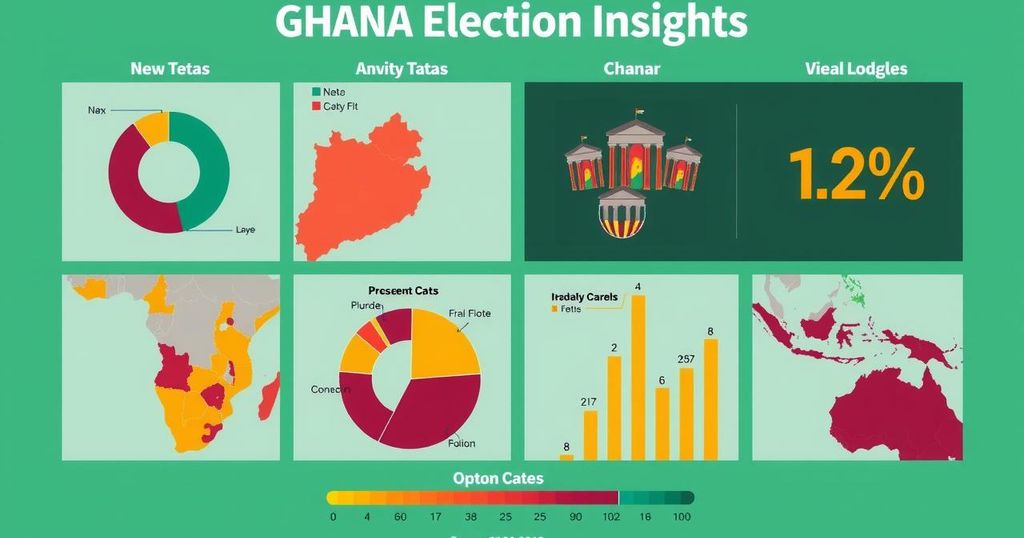Ghana is set for its ninth general election post-1992 multiparty restoration, with the NPP seeking a third term. Inflation reached 54.1% by the end of 2022, significantly impacting living standards and leading to increased poverty. The youth unemployment rate is notably high, and economic challenges are central to voter concerns ahead of the December 7 election.
Ghana is approaching its ninth general election since the reinstatement of multiparty politics in 1992, with the National Democratic Congress (NDC) and the New Patriotic Party (NPP) as the dominant political forces. The NPP is seeking an unprecedented third consecutive term as inflation rates have afflicted the populace, peaking at 54.1% in December 2022. Essential commodities like eggs and tomatoes have seen prices double over the past year, further straining household budgets while economic difficulties have resulted in increased poverty levels.
In 2022, Ghana defaulted on its debt obligations, leading to negotiations aimed at restructuring its loans, alongside seeking assistance from the International Monetary Fund. President Nana Akufo-Addo acknowledged the nation’s predicament, attributing it to external factors whereas critics have pointed towards government mismanagement. Ghana’s debt has escalated significantly, necessitating over 70% of government revenue for debt service by 2022.
Accompanying these macroeconomic challenges is a rising unemployment rate, particularly affecting young people under the age of 35. The joblessness rate stands at approximately 30% among 15 to 24-year-olds. Voter sentiments among younger generations are poised to be influential in the upcoming elections.
Ghana, as a major gold producer with additional resources in oil, gas, and cocoa, has experienced substantial economic transformation over the last three decades. However, issues like illegal mining pose environmental concerns and may affect public perception ahead of the polls. The average annual income has seen stagnation after 2017, creating a backdrop of discontent among voters.
Critically, elections in Ghana have historically been peaceful, with close contests often determined by marginal vote differences. Results are expected shortly after the elections on December 7, reinforcing the nation’s status as a model of democracy in a region troubled by instability.
Ghana has established itself as a stable democracy since the reintroduction of multiparty politics in the early 1990s. Throughout this period, it has witnessed substantial economic fluctuations characterized by both growth and crisis. The traditional two-party system has led to alternating governance between the NDC and NPP. Major issues facing voters currently include inflation, unemployment, and the impacts of governmental debt. Understanding the economic landscape, particularly the struggles with inflation and youth unemployment, is vital in analyzing voter sentiment ahead of the elections.
In summary, the upcoming Ghanaian elections are underscored by significant economic challenges, particularly inflation and unemployment, impacting voter sentiment notably among the youth. As the NPP aims for a third consecutive term amidst a backdrop of economic crises and rising dissatisfaction, the electoral outcomes could hinge on how voters perceive the government’s handling of these pressing issues. The nation’s democratic tradition of peaceful transitions and narrow electoral margins indicates that the upcoming election will be closely contested.
Original Source: www.bbc.co.uk






